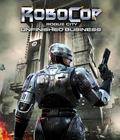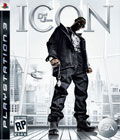Genre: Fighting
Publisher: Electronic Arts
Developer: EA Chicago
Release Date: March 6, 2007
Of all EA's spring line, perhaps the star that shines brightest is Def Jam: Icon. It's a bit of a controversial game among fans, since it radically repositions the entire concept of the Def Jam franchise. It also takes the franchise away from its original creator, Aki Corporation, and delivers it into the hands of EA's Chicago studio. Fans of past Def Jam iterations like Fight for New York may not know what to make of this, and may in fact be outright hostile to it. While it's still a game where rappers spontaneously develop incredible fighting prowess and proceed to fight with flying fists instead of phat rhymes, the wrestling and brawling emphasis that grew increasingly pronounced in earlier titles is gone completely. In its place is a stylized and rather artistic high-concept imagination of the fighting game colliding head on with the music video. It's very much the brainchild of its producer, Kudo Tsunoda, and bears both his blunt iconoclasm and fearless desire to break molds. It's challenging, interesting, and basically everything that EA's detractors like to pretend the company is incapable of publishing.
Tsunoda is no stranger to sports games, having worked with the EA Chicago team to produce the superlative Fight Night: Round 3. Where Fight Night dealt in realism, ICON moves into a strange place where hyper-realism clashes with a heightened reality that is strangely Nintendo-logical. The fighting in Def Jam is all about blending mayhem and rhythm. Rap is frequently a staging ground for metaphorical battles between stars, after all. So in Icon, the battles become real as various superstar rappers get together to try and, literally, assault each other with their music. It's the sort of dramatizing that might be expected of a particular ridiculous, over-the-top, and ultimately compelling action movie.
A session of the game works roughly like this: two rappers, each with a song, face off in a given area. The demo, for instance, used a level that was clearly supposed to be outside of one of those gently dilapidating houses that have become virtually synonymous with life in the projects. Two men sit in the front of the house, to watch the goings-on and groove to the soundtrack in approval. The entire world throbs in time with the soundtrack's beat. The house shimmies, debris bounces on the ground, and various hazards may fire off. A broken hydrant spewing water may suddenly burst into a more violent geyser, or a car in the nearby driveway may pull out into the road the rappers are fighting on and run somebody over. Your challenge as player is to become one with the beat and use it as a weapon to your advantage, in addition to a variety of kicks, punches, taunts and throws. Taunts add power to the physical blows of a combo at the expense of leaving your character open to attack for a moment, for example.
Different songs have different effects on the background, and each rapper has a fighting style that's generally tuned to make them especially deadly when fighting to their own music. A fighter with a talent for strong defense and reversals, for instance, might have music that causes hazards to fire off rapidly. Then that fighter can focus on luring rivals into traps and bludgeoning them to death with the background. A more aggressive fighter might favor a strong physical style, and then have music that tones down the appearance of background hazards. That would give a physical fighter extra room to maneuver without fear of a combo being interrupted by an inopportune reversal or the sudden appearance of a hazard.
For each of the game's thirty-five rappers, their music, in effect, becomes part of their arsenal. The dominating fighter controls the world with his song. So an opponent must either dominate through superior physical force, or find some way to change the music into one of their songs. A well-played match features lots of musical back-and-forth, as every rapper has a "turntable" move they can use to either "scratch" the song in DJ style (which also scratches the world, which lets you rapid-fire certain hazards) or to "change the record" to something else, as it were. Scratching is advantageous even if you don't have a fighter reliant on reversals and hazards, because scratching lets you effectively power-up a particular "beat" of a stage's background, and with it, any sort of combo damage that's ongoing at the moment.
Tsunoda liked to describe Icon's new approach to combat as "playing a music video", complete with surrealist pop-art imagery that utterly rejects the notion of photorealism as the apex of video game graphics. Although the ideology and style of rap and hip-hop suffuse the entire premise of the game, it's still fairly accessible to people who aren't fans of that style of music. The 360 version that was used for the demo had the ability to sync up with the hardware's native iPod support, and basically translate any song on an attached iPod into a song you could use as your rapper's fight theme. Special programming inherent in Icon analyzes the genre tags and other characteristics of your music in order to determine how the song will affect the backgrounds.
If you use a metal or thrash song, then you may find hazards attuning themselves to the guitar riffs, while a pop or disco song may synchronize primarily with the vocals. Songs as disparate as Kung Fu Fighting and Nasty Boys were pitted against each other in combat to show how the game could handle pretty much any wacky MP3 you might throw at it. I plan on immediately using my copy to make Method Man battle Chamillionaire to the sugariest, pinkest J-Pop idol junk I can download. That, my friends, is what playing video games is all about, and bless EA for making a game that lets you do that.
The demo was simply a basic example of how combat worked in a single level, but Tsunoda promised that the full game would offer much more than simple brawling. The single-player campaign was overhauled to remove the trite and frankly hilarious sorts of plots used in prior Def Jam games, which revolved around some ludicrously wealthy person like Ludacris deciding to pitfight in seedy nightclubs for petty cash. The new single-player concept allows you to track the rise of your chosen rapper from a nobody on the streets, to a signed artist, to a multi-millionaire with his own red hot record label. You claw your way up by winning musical battles with rival rappers, and later, with representatives of rival labels who are out to steal your talent and disrespect your organization. It's a refreshing step back from "urban lifestyle" games that seem to glory gangster ethos more than music, and gunning down everything in sight more than talent or style.
Tsunoda mentioned while demonstrating the game that much of it was born of his dissatisfaction with the state of urban lifestyle games, the state of graphics, and the representation hip-hop culture was receiving in video games. Too many games that were stale old gameplay with the bling shoved around it like a gold-and-diamond wrapper, too much vapidity and ignorance about the real meaning of hip-hop and its positive aspects. Likewise, he mentioned being dissatisfied with the idea that photorealism was all that video game graphics could aspire to when the new hardware on the market could do so much. These are all common complaints from gamers and journalists both, but we aren't in much of a position to really do anything about our dissatisfaction. Kudo Tsunoda and EA Chicago were, and Def Jam: Icon is the product. This game is going to be a real test of just how far into the realm of the avant-garde a major publisher can go without alienating their core audience.
More articles about Def Jam: Icon











 EA Chicago is delivering star-stunning action and bone breaking beats as players live out the life of a hip hop mogul, going from rags to riches. Incorporating hip-hop culture into every aspect of the game, Def Jam: Icon will deliver the intensity of a no-holds-barred street fight but with style and rhythm. Music will effect how players fight in each venue and environmental interactions and hazards will become a key strategy to staying alive.
EA Chicago is delivering star-stunning action and bone breaking beats as players live out the life of a hip hop mogul, going from rags to riches. Incorporating hip-hop culture into every aspect of the game, Def Jam: Icon will deliver the intensity of a no-holds-barred street fight but with style and rhythm. Music will effect how players fight in each venue and environmental interactions and hazards will become a key strategy to staying alive.




























